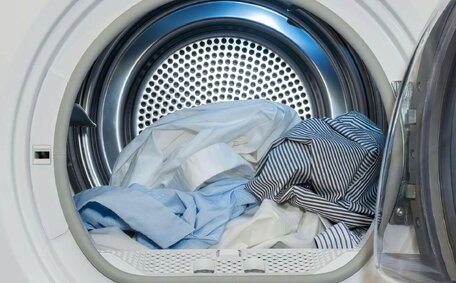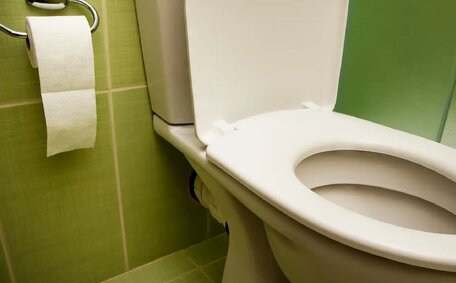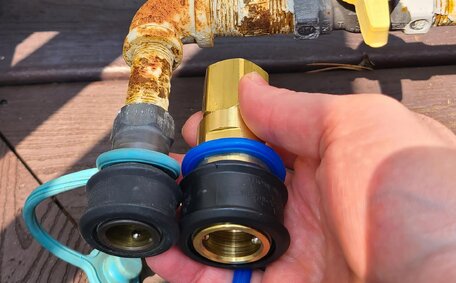How Cold Temperatures Can Impact Pipe Relining Materials and Processes
Cold weather increases the viscosity of pipe relining resin, which complicates installation and prolongs curing times, thereby delaying relining tasks.
Considering Ryde’s average July lows of 9°C is critical when scheduling plumbing maintenance and pipe relining.
Cold conditions may lead to calcification inside pipes, with mineral deposits from hard water solidifying. Thankfully, the smooth interior surface of resin-lined pipes can help prevent this type of calcification. Relined pipes also resist tree root intrusion, which protects against drain blockages, a boon in Sydney’s mild winters.
Understanding winter plumbing is crucial, allowing for strategic planning with suitable materials and timelines to avoid burst pipes. This practice guarantees year-round protection for your plumbing, including any electrical infrastructure within the pipes.
The Science Behind Pipe Expansion and Contraction
Temperature changes can affect pipes significantly due to the natural expansion and contraction of materials. Dropping temperatures lead to the contraction of PVC and copper pipes, potentially compromising your plumbing’s integrity. This shrinkage can affect your pipes, causing them to pull away from fittings and joints, potentially leading to leaks or fractures.
PVC pipes in hot water systems may significantly contract with each temperature drop, affecting your plumbing system. This means a 100-foot length of PVC pipe could shrink almost 1 inch when winter hits!
Copper pipes exhibit less severe expansion and contraction, yet a 30-metre copper pipe may contract about half a centimetre during a temperature drop of 10°C. Such temperature variations can also lead to weakened pipe joints over time.
The pipe relining process requires consideration of pipe contraction effects on lining integrity. Special sleeves and flexible sealing compounds ensure linings remain snug despite shrinkage. Additionally, preventative measures, such as insulating pipes, are crucial in safeguarding against scenarios where pipes burst due to temperature extremes that lead to expansion and contraction.
With knowledge of pipe material science, our team uses best practices to protect plumbing from bursts due to snow and ice throughout the winter. Homeowners, armed with knowledge of the risks including burst pipes, can take effective preventative measures.
Preventing and Detecting Frozen or Damaged Pipes Before Relining
There are a few key strategies homeowners can employ to help keep pipes from pipe freezing during Sydney’s winter chill:
Preventative Measures
- Leaving taps to trickle slightly overnight maintains warmer temperatures in pipes, reducing the risk of freezing.
- Seal any air leaks and insulate pipes in unheated areas like crawl spaces or attics to affect your pipe temperatures positively.
- Insulate outdoor taps and pipes to maintain flow and stabilize pressure; contact us for tailored insulation advice.
- Open cabinet doors to allow indoor pipe heat to circulate.
Detection & Inspections
Despite preventative steps, undetected freeze damage may still happen. We highly recommend CCTV drain inspections to pinpoint any pipe issues before relining jobs begin. Our skilled plumbers conduct sewer line inspections, using specialized cameras to identify issues regardless of heavy rain:
- Cracks or leaks resulting from frozen pipes and the subsequent expansion inside your sewer system.
- Blockages that can clog drains from burst sections or ice dams.
- Other damage like mineral buildup or signs of ageing.
Detecting issues promptly can do wonders to ensure that pipe relining progresses flawlessly towards an optimal restoration result. Contact us to arrange an inspection at your convenience.
Troubleshooting Pipe Relining Issues Caused By Cold Weather
The cold winter climate in Sydney lengthens the resin curing process, thus prolonging pipe relining projects. Additionally, the manageability of sensitive relining materials decreases in the cold.
To troubleshoot these cold weather challenges, our team takes special precautions, like utilising fast-setting resins formulated for lower temperatures. We take efforts to leave your equipment and materials protected from exposure whenever possible. Onsite tents, heaters, and insulation help maintain moderate working conditions.
For extended cure periods, we modify project schedules and timelines because time can be a significant factor in colder conditions. Our seasoned team at Ryde Plumbing expertly adapts pipe relining techniques to seasonal variations. Feel free to contact us to address winter-related concerns for your planned relining job.
Adaptations For Conducting Pipe Relining In Winter Months
During the colder months of the year in Sydney, carrying out pipe relining operations necessitates several crucial adjustments to accommodate the significant drop in temperature.
A crucial consideration involves safeguarding and preserving the thermal integrity of the entire pipe lining supply necessary for effective pipe relining operations onsite. We regulate pipe temperature using robust insulation, thermal enclosures, and heaters, counterbalancing the effects of weather extremes. Careful material handling, considering the effects of hot cold weather extremes, prevents damage or compromising relining resins.
To aid resin curing, we circulate hot water through pipes or apply electric heating pads, counteracting cold weather’s delay of the process. Concentrated heat reduces curing times to ensure cold weather doesn’t postpone your project. We also use fast-setting resins designed specifically to cure in colder weather.
Project timelines may need adjustment during the colder months year to accommodate expanded cure schedules. Our crew is prepared to work longer days if needed. We also provide frequent progress updates so homeowners know what to expect.
Leveraging over thirty years of expertise, our team possesses the skillset required to customise the pipe relining process for the unique winter scenarios of Sydney and the Gold Coast. Don’t hesitate to call us to learn more about our cold weather relining capabilities.
Innovations in Pipe Relining For Improved Winter Performance
Innovative developments in pipe relining enhance performance for installations in cold conditions.
Advanced Cold-Cure Resins
Innovative fast-curing epoxy resins enable sewer pipe relining in cold conditions, setting in as little as 1 hour in temperatures of up to -20°C. Their rapid set times mean fewer equipment rentals for extra heat or insulation.
Heated Relining Packers
Self-heating bladders circulating fluid at close to 57°C streamline the curing process. This targeted heat, crucial in the CIPP lining process, accelerates set times by up to 50% compared to ambient winter temps. Internal heating elements provide an all-in-one solution.
Cryogenic Relining Materials
Special resins and fabrics designed for cold resistance withstand extreme sub-zero temperatures without brittleness. Liners infused with these materials have improved longevity and prevent winter damage.
Innovations like these pave the way for year-round pipe relining, regardless of winter’s chill. Ryde Plumbing stays atop of the latest technologies to provide clients with advanced solutions.
Proactive Winterizing To Avoid Plumbing Problems
When frigid winter weather strikes in Ryde, it’s vital to prepare your plumbing system against damage. Being proactive with winterizing can prevent costly issues like burst pipes or appliance breakdowns.
Homeowners, particularly in colder areas like Salt Lake, should winterize plumbing systems in early fall to ensure protection until spring. This gives time to perform upgrades in your home that prevent freezing:
- Adding pipe lining insulation to protect against freezing.
- Weatherproofing outdoor taps and shielding exposed pipes can mitigate risks of burst pipes and freeze damage.
- It’s crucial to service key appliances, like hot water systems, to guarantee optimal performance and lessen the risk of breakdowns in cold weather.
- Checking for drafts near pipes and sealing air leaks.
Knowing the location of your shut-off valve is key to protecting your home from significant water damage. Have our contact details handy for prompt plumbing repairs should the need arise.
Proactive preparation keeps your plumbing system safe through winter. For winterizing or repairs, don’t hesitate to reach out to our Ryde Plumbing team.






